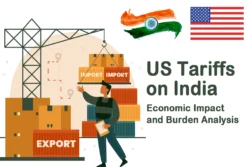Press Release (ePRNews.com) - NOIDA, India - Apr 20, 2017 (UTC) - In the light of latest IMF statement asking India to go for labour market reforms, in the spring meeting of IMF/world Bank, it is stated that a recent research study by a team of economists at Indian Institute of Finance has suggested setting up of a National Labour Exchange to achieve an Efficient Labour Market, full employment and maximising wealth. The study entitled Theory of Employment, Wealth and Efficient Labour Market through National Labour Exchange, by J.D.Agarwal, Manju Agarwal, Aman Agarwal and Yamini Agarwal, has been submitted, earlier in March 2017, for presentation in a conference of American Finance Association to be held in first week of January, 2018 in USA. One of the authors is currently attending IMF/World Spring meeting in Washington D.C. U.S.A.
The authors of the research have proposed setting up of a National Labour Exchange along the lines of National Stock Exchange, Bombay Stock Exchange and Commodity Exchanges worldwide in order to promote efficiency in the Labor market, full employment and generating wealth and for positive contributions to GDP. The author also consider that Labor is a valuable resource and a wealth of a nation, having potential to generate more wealth. In the study the authors questioned the concept of wages or price of labor as in classical economics, but supports Ricardo’s theory of value and laissez faire through efficient labor market.
The proposed Model of creating efficient Labor Market through National Labor Exchange, according to the study completed at IIF, will facilitate an automatic way for Full Employment, generating wealth for the Nation, Firm and Labour, easy access to information about the availability of Labour hours & jobs. It would also help save employment costs in a market driven economic system with asymmetric information. National Labour Exchange as proposed, in the study, would also help rating certificates, diplomas, degrees, skill development and experiences of labour based on scores and would facilitate transparency in the efficient labour markets where man hours and services can be traded like stocks bonds and commodities. It would automatically adjust the return to labour based on value addition and economic and business conditions avoiding the problems of laying off. Efficient Labour Market would facilitate perfect or nearly perfect mobility of labour and full employment and maximizing wealth through National Labour Exchange which would need digitalization of labour records.
Labour is the most important resource that utilizes natural or capital resources in most productive manner to create and generate wealth for nations, companies, organizations and for themselves state the authors of the study. Despite the technological revolution and advancements in the artificial intelligence, labor continues to be supreme and guides the functioning of all economic events and economic systems. Labor in itself is wealth of a nation. But it is not effectively utilized. Labor suffers from lack of employment opportunities, poverty, poor wage, income variations, immobility and many other problems. In developed economies, wages constitute about 70 % to 80 % of the pre-tax income and post transfer payments with at least one working member in each household. However in developing and emerging economies this share is less than 50% for example it is 40-50% in Argentina, 40% in Peru and 30% in Vietnam. Despite the importance of labor in the world economy, labor market is far from perfect for lack of necessary information available.
The proposed National Labour Exchange as suggested in the study, according to authors, would induce competition, both among employers and labour to maximize the productivity, maximizing wealth, GDP and social welfare. Labour, instead of being idle or underemployed would prefer to pick up a job with lower return. It would provide transparency and accountability of the employer, employable and employed and would avoid exploitation of labour. Efficiency in labour market would help foreign investors, to know about the skill, experiences, qualifications and desired return of labour in a country. This is in turn will remove any fears regarding the availability of labour in a given industry.
The payment to labour should be based on return to labour on the basis of value addition, rather than as wages as is being currently done. Payment of wages is exploitative on one or the other ground. Labour is resource (wealth) as much as land or capital and deserves return to labour. In the study it is stated that the wages paid to labour should be replaced by “Return to Labour” based on value addition. Return to Labour would be automatically directly linked to productivity. It would give dignity and enhance or reduce return.
Setting up of National Labour Exchange,would create one national market for labor exchange, uniting the country and its countrymen to one common working platform removing the discrimination of regional imbalances, labor immobility and information asymmetries that create distortions in the demand or supply of labor. It would encourage labour at all levels to acquire certificates, degrees, skill and focus on maximizing productivity so as to quality for a composite score to be high to get better return on jobs and choice of firms.
The proposed Model of creating Efficient Labour Market through National Labour Exchange will facilitate an automatic way for Full Employment, generating wealth for the nation, firms and Labour, easy access to information about the availability of Labour (man hours) and jobs. It would also help save employment costs in a Market Driven Economic System with Asymmetric Information. National Labour Exchange as proposed would also help Rating Certificates, Diplomas, Degrees, skill development and experiences based on Scores and would facilitate transparency in the Efficient Labour Markets. It would automatically adjust the return to labour based on value addition and economic and business conditions avoiding the problems of laying off.
Source : Indian Institute of Finance



